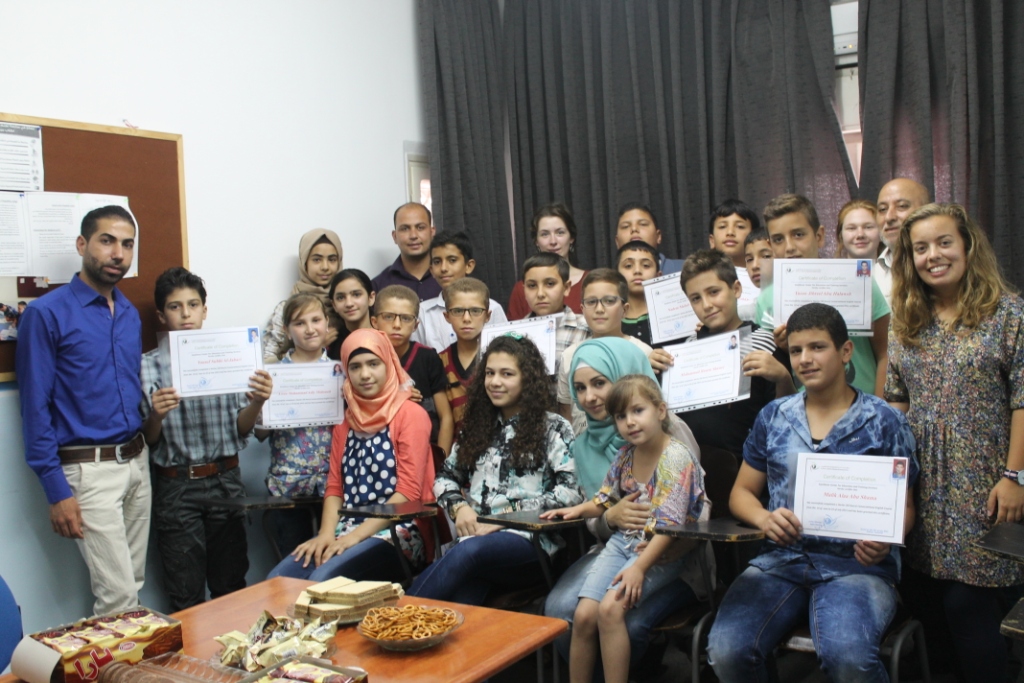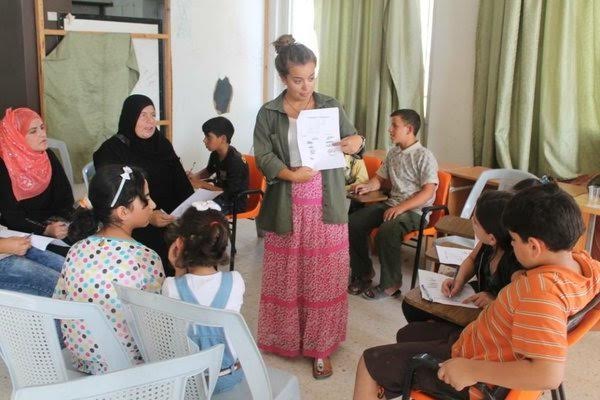 Carmen Villasante (or Carmela, as she likes to be called) was born in the north of Spain in a small town called Coruña, but she has been living in Madrid in the past few years while studying for a BA in International Relations, and Translation and Interpreting. Because of her studies she became interested in the Middle East and human rights and international law, especially focusing on the right to self-determination of colonial peoples, which made Palestine an ideal destination for her.
Carmen Villasante (or Carmela, as she likes to be called) was born in the north of Spain in a small town called Coruña, but she has been living in Madrid in the past few years while studying for a BA in International Relations, and Translation and Interpreting. Because of her studies she became interested in the Middle East and human rights and international law, especially focusing on the right to self-determination of colonial peoples, which made Palestine an ideal destination for her.
What is one thing you would tell future participants about Palestine and the Center?
Do not hesitate. Despite what your family, friends, and acquaintances tell you, do not hesitate. My decision to go to Palestine was sudden, taken in the spur of the moment, and was opposed to what pretty much everybody told me. As I think about it and assess the decision calmly, I couldn’t be happier that I decided to participate in the volunteering program. The Center has given me the opportunity to add something to Palestinian society, though not as much as I would have liked. I want to believe that my decision has not only been good for me, but also for the people I met along the way.
So, future participants, really, do not hesitate. I bet my last dime you won’t regret it.
Do you recommend participants learn Arabic before they travel to Palestine? Why?
Although useful, I don’t think Arabic is a 100% necessary. It would surely make you feel more confident and maybe more comfortable in most situations knowing that you can at least speak your mind, but I personally didn’t know anything before going to Palestine, and I never felt that I needed it. Of course, there were always moments in which I wished to be able to speak and understand Arabic, but, generally, people are so eager to practice English and to be kind and nice to you that you will be able to communicate without problems (if not in English, at least in international sign language!)
What did you like most about the Palestinian culture and society?
What I liked most about Palestine is probably its people. Everybody was so kind and warm with me; they truly made me feel welcome without even trying. I remember my first day with my host family; I was still a bit of an “outsider” or “intruder” at their house; but, they showed me around the village, introduced me to the neighbors, and finally dressed me in a traditional Palestinian thobe. I was treated as another member of their family, and I truly felt at home. This not only happened with my host family, but with almost everybody I met; complete strangers were kind and friendly without asking for anything in return.
Through the Palestinian people I got to understand the culture, to learn about it, and to experience it. I fell in love with the country through its people.
Did you learn any Palestinian crafts, food, or dance?
I only stayed in Palestine for a month, so I had limited time to learn about these things, but I feel I made the most out of my short stay. I had the opportunity to go to several weddings and experience the culture on the spot. This enabled me to approach and explore Palestinian customs and traditions, dances and music, which is something I will always be grateful.
Moreover, thanks to my host family I was introduced to a whole new world of dishes, spices, flavors, and textures. I have always enjoyed cooking as a hobby, and I was eager to learn more about Palestinian food. The actual experience of cooking was way beyond my own initial expectations.





